The Barmy Army in Galle
This summer I had the pleasure of finally getting to shoot photos at Lords, ‘the home of cricket’ in north London. As a bastion of sporting tradition and establishment life, it was well worth the wait. The members all wear jackets and ties, and queue outside from the early hours to get the best seats.
I had a question for their press office. Which cricket ground in Asia would be the most interesting to see a test match? The unanimous answer came back, Galle in Sri Lanka.
So here I am, six months later, about to drive into Galle and witness the first of three test matches between England and Sri Lanka. One motivation for this visit would be to witness the now legendary Barmy Army in action. These are the loyal followers of the English cricket team that travel to support the team when they tour. Rather touchingly, this name was coined by Australian cricket fans. In the mid 90s the English fans would travel all the way Down Under to witness, with depressing regularity, England lose another match. The assumption was that these fans must be mad, hence the name.
The Barmy Army has grown into a huge and successful travel company. Members are identified by their distinctive white tee shirts. The Barmy Army has also become the generic name for travelling English cricket fans.
As I walk into the ground I can see many hundreds of people in position in Galle Fort, ready to watch the match. The fort’s ramparts, high above the cricket ground afford the best view possible of a major sporting event that can be had for free, and thus add to Galle’s fame and notoriety. The fans spread themselves along the high walls, often in quite precarious positions. Although this is free, actually entering the ground doesn’t cost much either: around $2 a day.
In the ground itself, most of the crowd are English, as although cricket is the national sport here in Sri Lanka, it seems there is not as much enthusiasm for a long drawn out, five-day test match. The sudden death, one-day matches most appeal to Sri Lankans.
The match is about to start and I need to locate ‘Billy the Trumpet’; he leads the traditional rendition of Jerusalem in the first over (an over is unit of six bowls) and sure enough his virtuoso playing starts up and the singing echoes round the stadium. Everyone knows the words as it is like the second national anthem after God Save the Queen. Billy Cooper, a professional trumpet player, was kidnapped by the Barmy Army about twenty years ago and has been their musical mascot ever since. Now we settle down to five days of cricket, for this is a very long game indeed.
Another tradition that gets going before the match begins is the hanging out of assorted English flags, some emblazoned with the names of football clubs. Small sums of cash are offered to the army of groundsmen to hang these in prominent positions. They are thus picked up by the TV cameras and broadcast to the world. You can also see these flags hanging from the Fort.
A day’s cricket consists of three sessions, and the timings run with clockwork precision. The morning is 10am -12pm. At Lords you will see hampers, champagne and a delicious spread being laid out at lunch. Not in Galle, for here you grab a hot dog, some pot noodles and of course, another beer. Then after forty minutes back to cricket before they break for tea at 3.40pm. Who else but the English would do such a thing? Well of course, all the ex-colonies, which is basically where cricket is played (with the exception of Canada). After the British colonies gained independence cricket was one of the surviving legacies, along with the ability to make a good cup of tea.
During the last session, between 3 and 5pm , the Barmy Army are coming into their own, fuelled by generous quantities of beer. Billy is leading assorted ditties, some of which reference English players such as the bowler Moeen Ali with a traditional song : ‘One man went to Mo. Went to Moeen Ali’ Other songs reference the Barmy Army itself. ‘We are everywhere and we are noisy. We are the Barmy Army.’
As well as the UK base, the Barmy Army have clubs and outposts in cities such as Dubai and Sydney; these have also shown up for the match. Fancy dress is often worn and the fans’ behaviour gets bolder throughout the day as more beers are consumed. Often people forget they are here to watch cricket, but I guess that could be said of many sporting fixtures, especially those that involve drinking.
It is now day four and the match is nudging towards the close. England have to bowl Sri Lanka out to win and this possibility is tantalisingly close. Rangana Herath, a very respected Sri Lankan fast bowler, is playing his last match and the small but noisy gathering of Sri Lankan school kids have been handed Rangana posters and face masks. These have helped to liven up the local support and it feels more like a proper match.
Rangana is bowled out and round of applause, from both camps, echoes around the ground, the Fort spectators also joining in. After one more wicket, England have won the match which has been very speedy, closing early at the end of day four. The Barmy Army leaves the ground jubilant, smiling broadly; they have not won a test match abroad for nearly two years now. Perhaps they are not so barmy after all.
Martin Parr

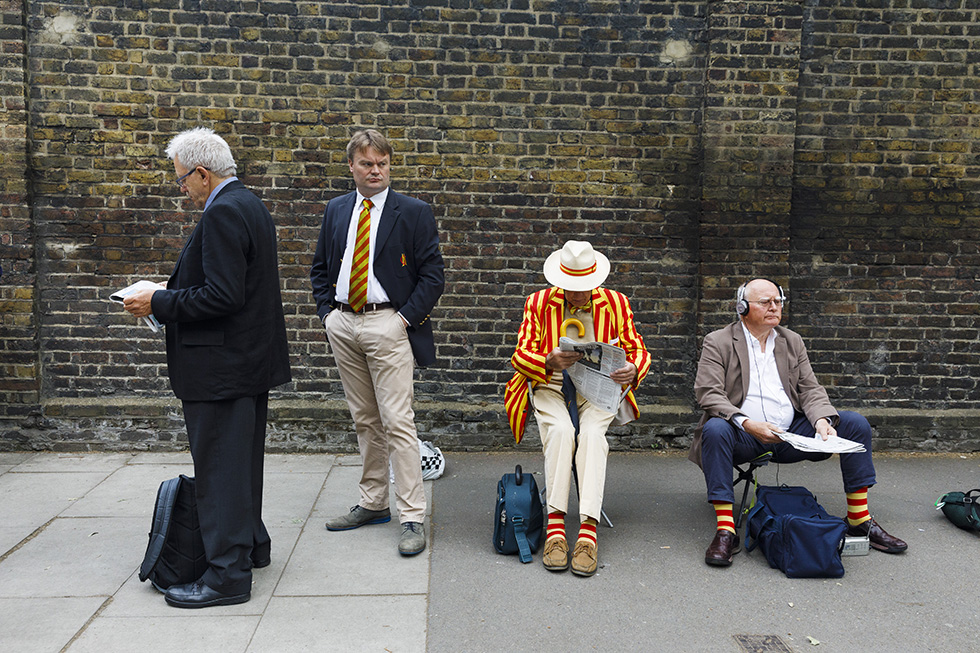
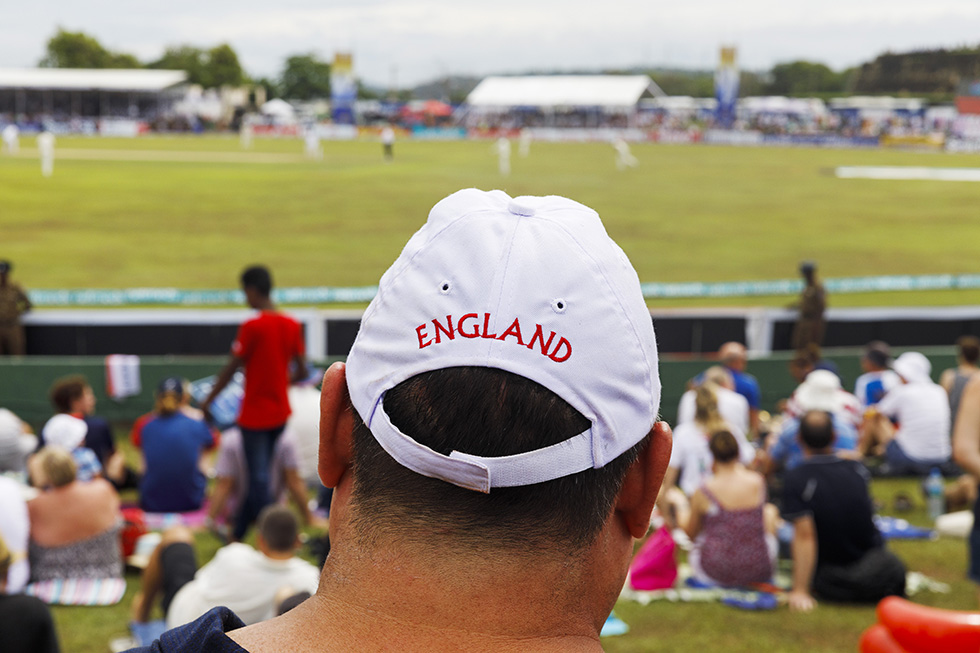
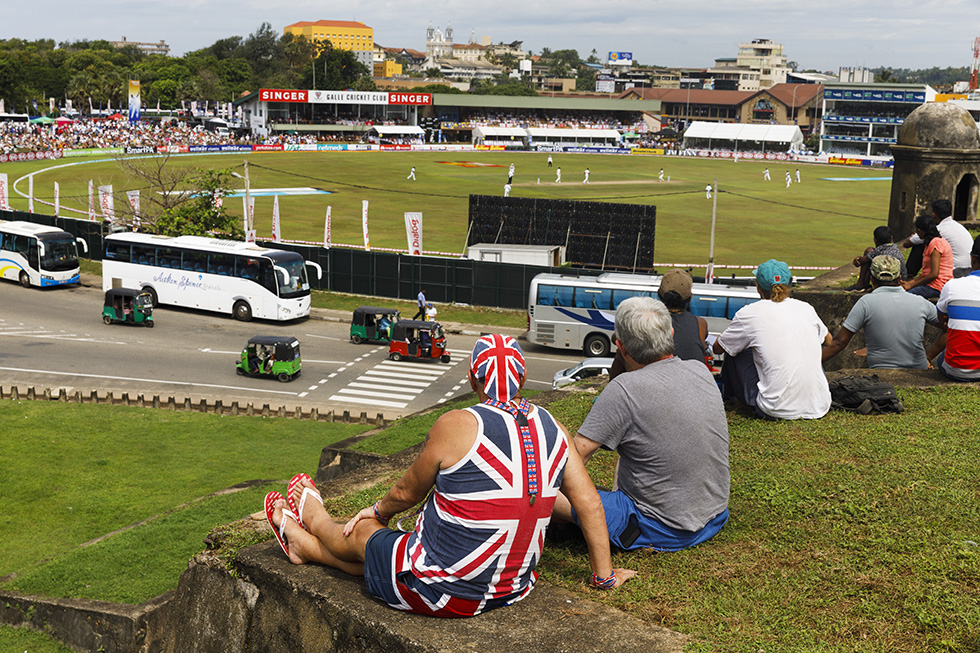
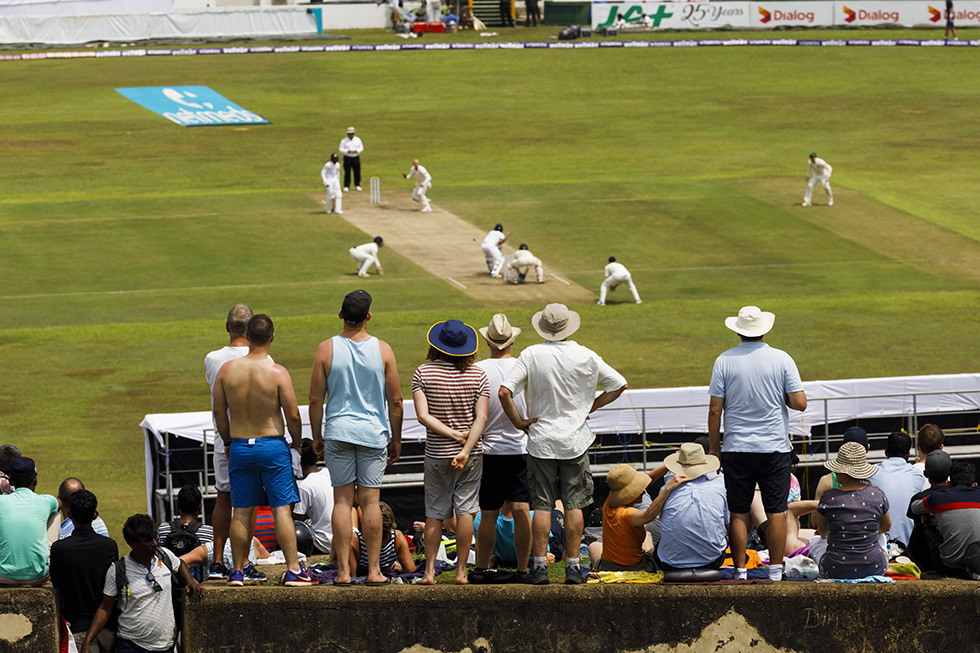
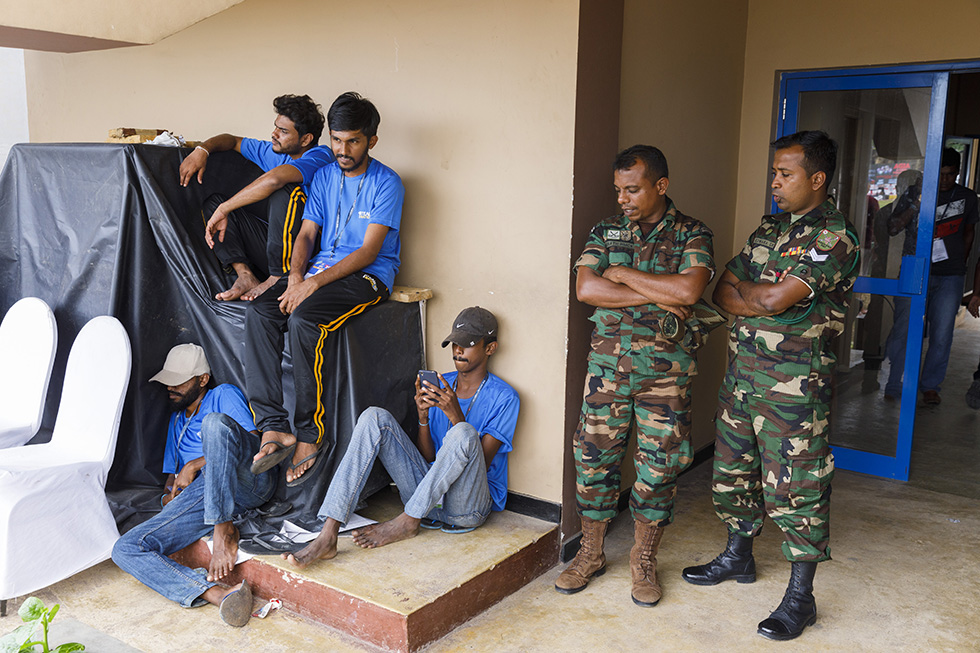
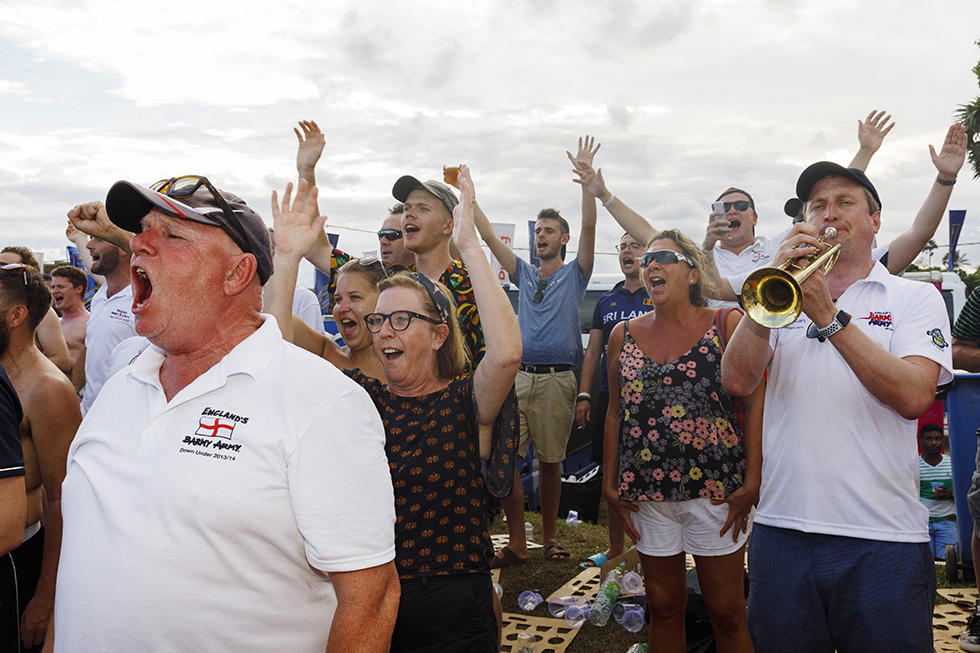
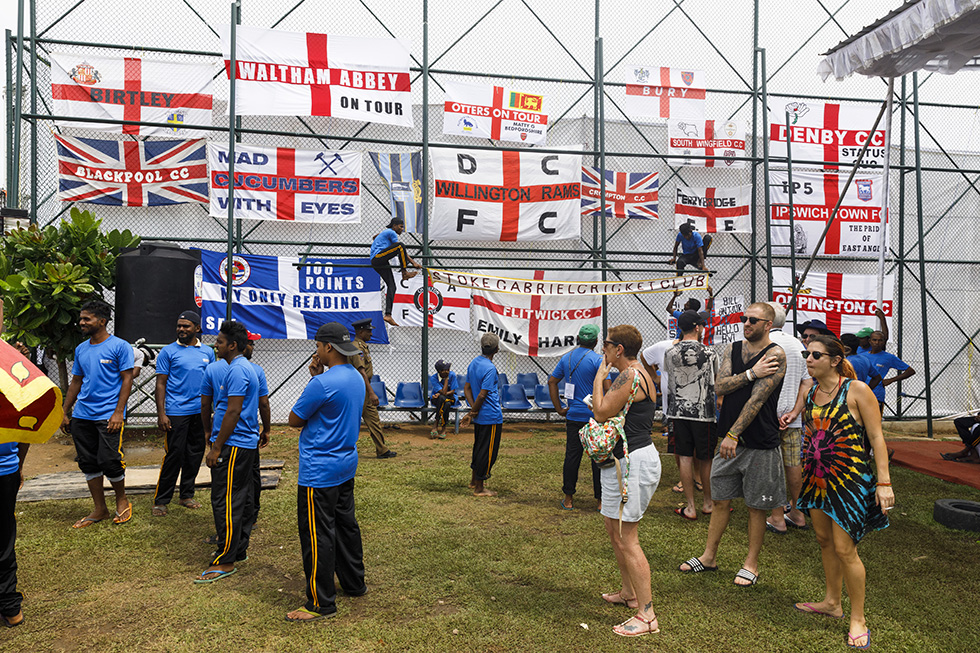
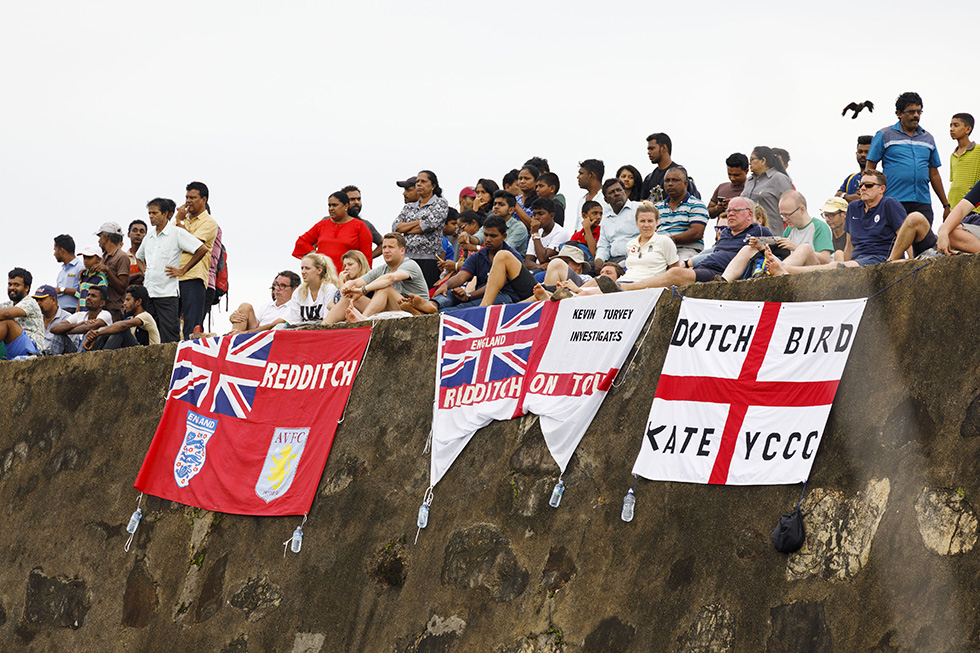

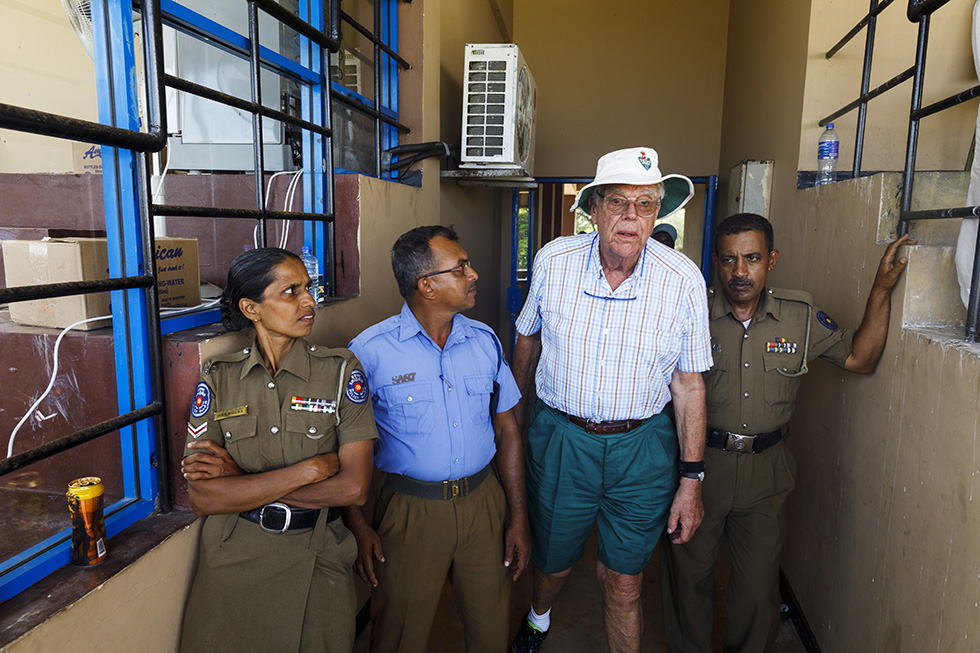
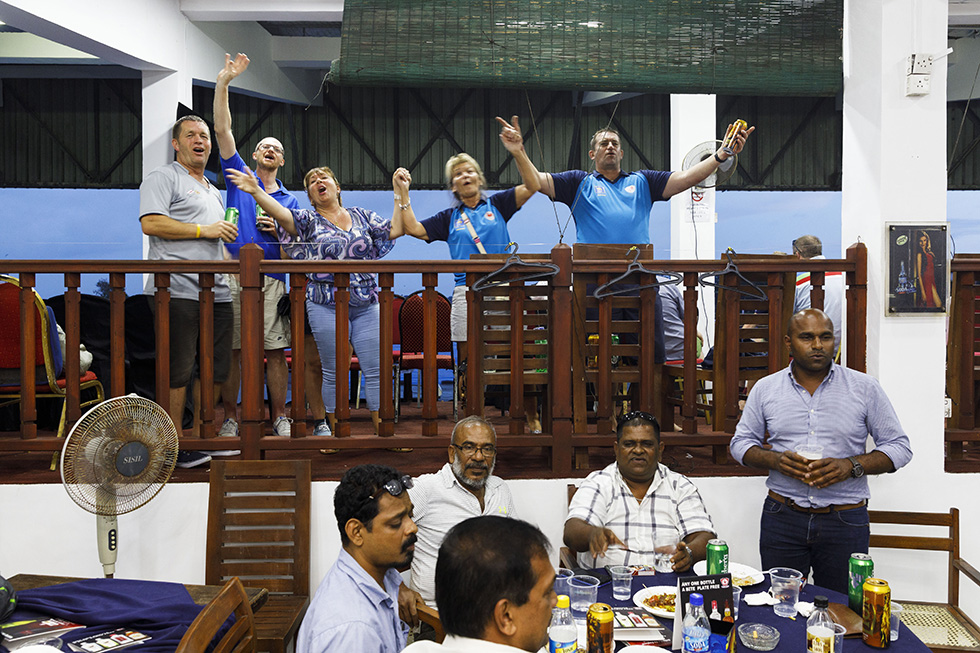
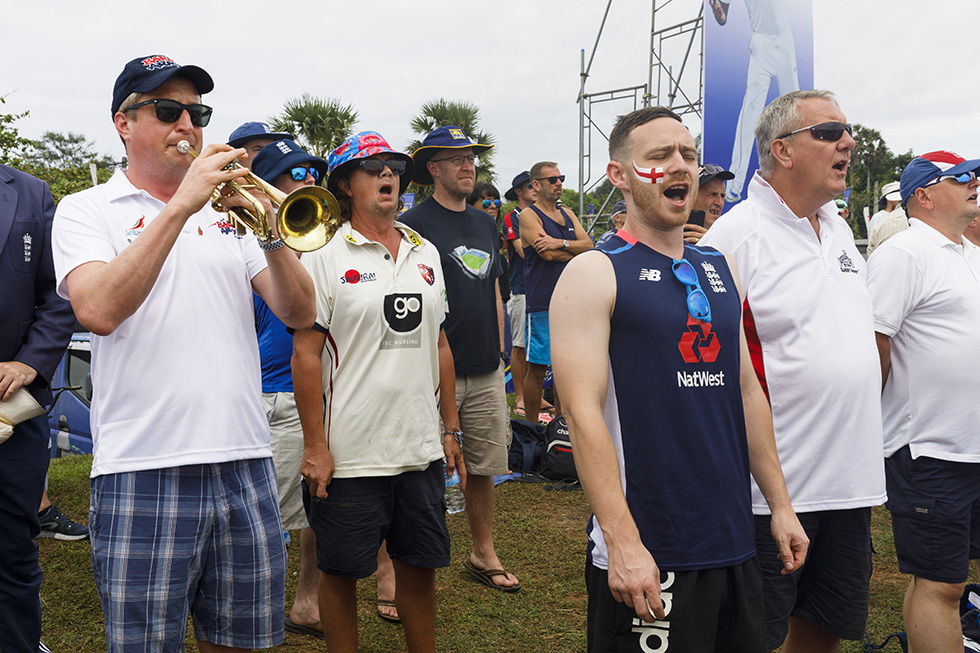
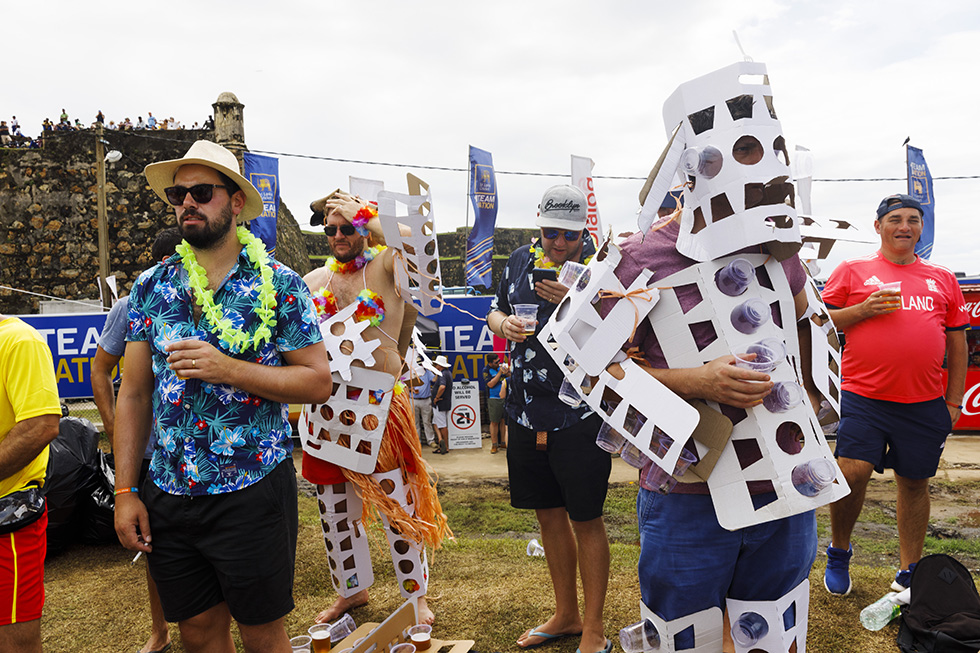
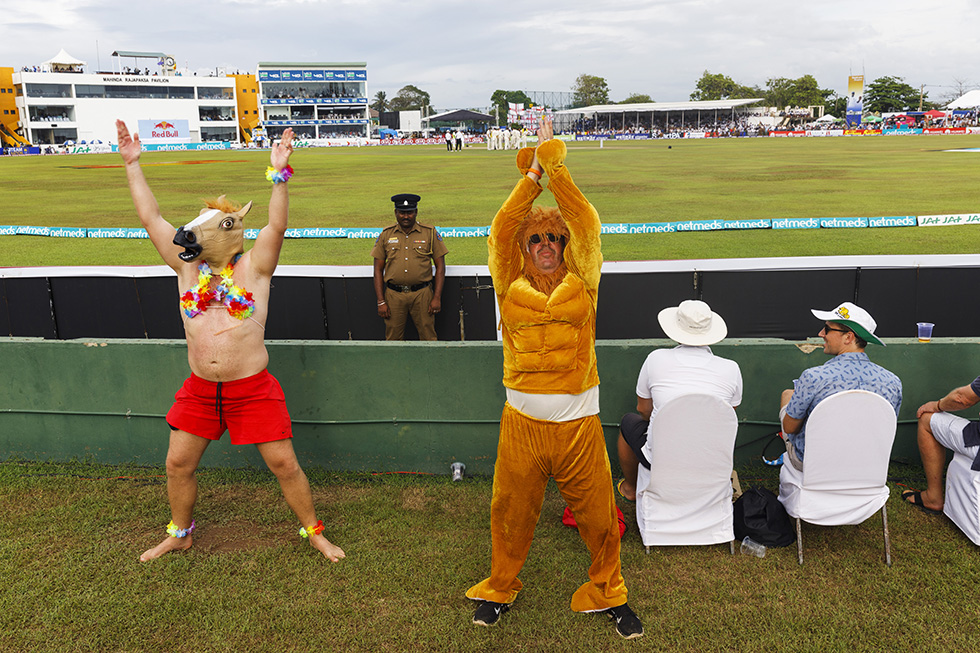
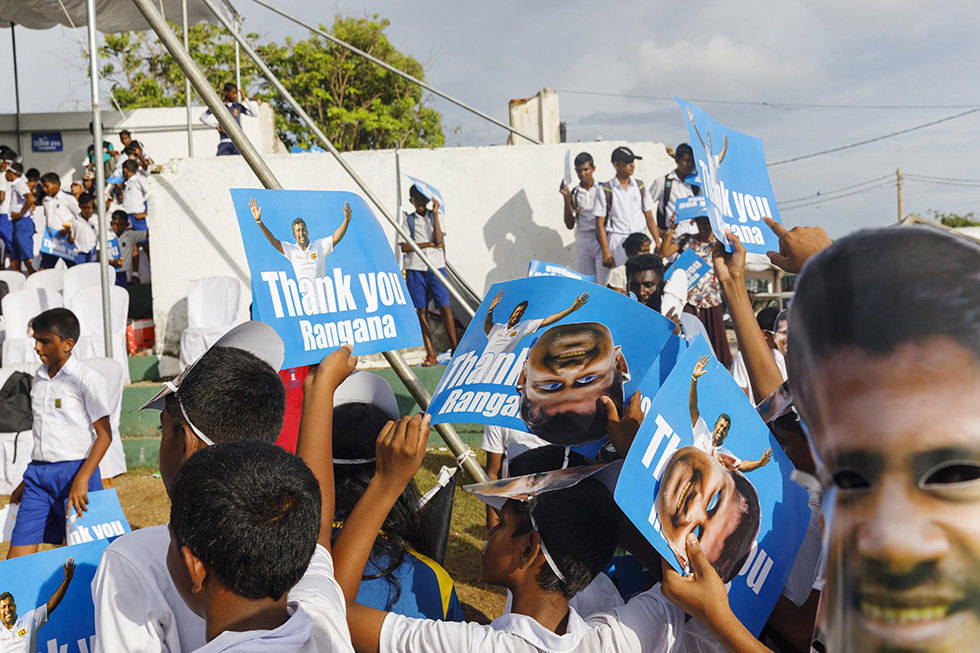

Comments are closed.